There was a time when international diplomacy was a relatively stable affair – undoubtedly complex, but at the same time fairly predictable. The great powers decided policy quite cynically, in line with their own national interests.
While the moral standards of these decisions were frequently questionable, they were without doubt usually taken as a result of rational calculations. The war aims of each nation were therefore easy to predict. The advent of Donald J Trump appears to have torn up the rule book of world diplomacy.
Trump’s quick decisions, which frequently signify a 180 degree change of course, bear all the hallmarks of last-minute impulses rather than the result of a carefully worked out strategy. That is indicative of the way he carries out foreign policy. That is precisely what makes it so difficult to predict from one moment to the next.
This fact, in itself, is an enormously complicating factor in world politics that greatly increases the instability that is, in any case, inherent in the whole situation and is a reflection of the crisis of capitalism.
On Saturday 22 June, the President of the United States issued a surprise announcement that he had ordered the U.S. Air Force to bomb three nuclear sites in Iran, joining Israel’s attacks against Tehran’s nuclear programme in a dramatic escalation of the conflict in the Middle East.
The news was received with jubilation in Israel, where people woke up in the morning to news of overnight US strikes and to the sounds of missile sirens. No wonder, then, that gigantic billboards sprang up in all Israeli cities carrying the words: “THANK YOU, MR. PRESIDENT!”
Lawyer Efrat Eldan Schecter in northern Israel doubtless spoke for many Israelis when she told the BBC that she is “relieved and grateful” that the US “has taken decisive action against Iran’s nuclear program”, adding that she hopes it “marks a turning point towards a safer future for all”.
Whether such an optimistic future has been guaranteed by this sudden development, or whether it is merely the signal for a new and alarming downturn in the spiral of violence and bloodshed remains to be seen.
But no such doubts entered the feverish brain of the Israeli Prime Minister, Bibi Netanyahu. Rather, when he heard of Trump’s decision to launch an attack on Iran’s key nuclear installations, he could barely conceal his glee. Speaking to BBC’s Laura Kuenssberg, Israel’s president called the US attack on Iran a “historic” and “brave” decision.
This reaction was quite natural, since Bibi had been banking all along on provoking a regional conflict, which would force the US to become directly involved on Israel’s side. Thus, when Trump ordered the strike against Iranian nuclear facilities, his most fervent prayers seemed to have been granted.
According to the Bible, Jehovah saved his chosen people by dropping Manna from heaven to feed them. But the US president drops far more useful gifts in the shape of a shower of massive so-called bunker-buster bombs.
But his glee did not last for long. In the words of the great Scottish poet Robert Burns:
“But pleasures are like poppies spread,
You seize the flow’r, its bloom is shed.”
Trump’s subsequent statements fell like a shower of icy water on the joyful expectations of the Prime Minister of the state of Israel.
Was it a success?
Since the declared aim of this strike was allegedly to destroy Iran’s nuclear programme, the first question which must be asked is, naturally: “Did it succeed in its aim?”
One man, at least, entertained not the slightest doubt on this question. In highly triumphant – not to say, exultant – language, President Trump on Saturday evening boasted that the US had completed a “very successful attack” against three Iranian nuclear sites at Fordow, Natanz and Isfahan. It had, he insisted, “eradicated Iran’s nuclear threat forever.”
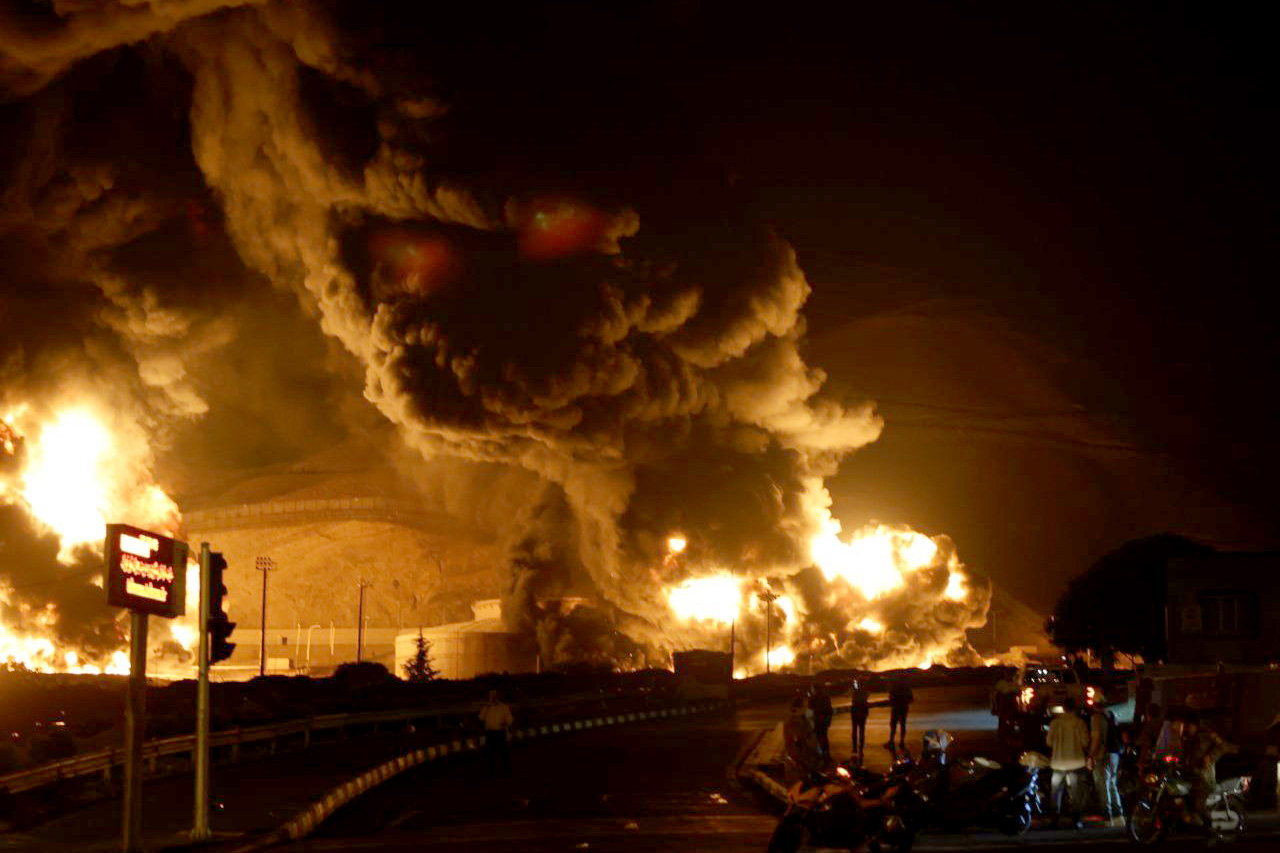
However, the statements did not seem to correspond to the facts. The International Atomic Energy Agency (IAEA) found that there has been no increase in radioactivity levels after the US struck. This immediately casts doubt on the reality of Trump’s claims.
If the damage inflicted on three major nuclear sites in Iran was as massive as he maintained, surely some increased level in radiation ought to have been observed, however slight it may have been. But it seems that there was none at all.
Immediately, voices were raised even within the administration casting doubts on the initial excessively optimistic assertions. According to a New York Times correspondent, “A senior US official who asked for anonymity acknowledged that the B-2 attack on the Fordow site did not destroy the heavily fortified facility but severely damaged it.”
Similar comments were made by J.D. Vance and other members of the administration, who were clearly aiming to introduce an element of reality into the wildly optimistic statements made by the president.
US Secretary of State Marco Rubio told Politico that Iran is “much further away from a nuclear weapon” after a US strike. But he refrained from stating that the sites had been completely destroyed.
Later, a leaked intelligence report said US strikes on Iran’s nuclear facilities had likely only set back the country’s nuclear programme by a few months.
Trump reacted to all such statements with undisguised fury. “The intelligence says we don’t know. It could’ve been very severe. That’s what the intelligence suggests.”
He slammed CNN and the New York Times for their reports on the leaked intelligence assessment, claiming they had teamed up to “demean one of the most successful military strikes in history,” and declared Iran’s nuclear sites were “completely destroyed”.
To this, he added in an angry outburst:
“It’s not politically correct to use the term, ‘Regime Change,’ but if the current Iranian Regime is unable to MAKE IRAN GREAT AGAIN, why wouldn’t there be a Regime change???”
This statement seemed very much like an endorsement of Netanyahu’s declared policy of ‘regime change’ in Iran. In fact, at that moment, everything appeared to indicate that these US attacks left the door open for further strikes.
All this pointed clearly in the direction of a renewal of American hostilities against Iran in the immediate future. The entire region was holding its breath as people waited to hear whether this marked the beginning of the end of this conflict, or the beginning of an even more deadly phase.
But as so often happens in the topsy-turvy world of Donald J Trump, things turned out differently.
A limited strike?
Trump suddenly began to issue signals pointing in an entirely different direction – namely, that the aerial bombardment of Iranian nuclear facilities would be sufficient to bring Iran to its knees. His new utterances clearly signalled that this was a limited strike.
He was hoping that one massive show of strength would be enough to put America’s involvement in the war to an end. But this was an extremely risky calculation, which immediately came into conflict with reality.
The point is that, although it is easy to strike the first blow, it is not at all safe to assume that the other side will prove too cowardly and weak to respond in kind. But the entire gamble depends precisely on how the other side will respond. That means that one can lose control of the situation entirely.
It is true that, for a long time, Iran showed considerable restraint in the face of blatant provocations by Israel, including repeated murders of its military personnel as well as 62 scientists involved in its nuclear programme.
But there are limits to all things. The situation was pregnant with the most serious consequences and unpredictable risks. The Islamic Revolutionary Guard Corps (IRGC) said its attacks on Israel would continue, and it said it would respond to the US airstrikes.
It said the US had placed itself directly “at the front line of aggression” by attacking nuclear facilities that they insist were engaged in peaceful, lawful activities. They added that Iran’s nuclear programme cannot be destroyed by such an attack.
The statement added that the US cannot escape the consequences of its airstrikes, and said Iran would not be intimidated by Israel or the US, terming them “criminal gangs ruling the White House and Tel Aviv.” And it warned that the US bases in the Middle East are a “point of vulnerability”.
That is perfectly true. The presence of up to 40,000 American soldiers scattered about in numerous military bases in the Middle East undoubtedly presented a tempting target for Iranian retribution. And all the aircraft carriers in the world could not possibly provide adequate defence of all of them all the time.
The ability of the Iranians to strike targets inside Israel, which possesses formidable air defences, must have been quite a shock, both for the Israelis and the Americans. And the tremendous destructive power of those missiles is attested to by the scenes on television of the devastation they have caused.
That fact must have weighed very heavily in Trump’s calculations. But an even greater fear was the realisation that the Iranians have it within their power to close the Strait of Hormuz, through which a large part of the world’s gas and particularly oil, a highly strategic commodity, must pass. And if there is one thing which is very important for Donald J Trump, it is to maintain the stability of oil prices, and above all, to stop them from rising.
A serious increase in the price of oil would drive up inflation, with devastating effects on the cost of living – something which Donald Trump made a central issue in his election campaign.
Rising oil prices signify not only an increase in the price of petrol, but a general increase in the price of food and other necessities. Such a situation would spell political suicide for Trump, whose support is already beginning to wear thin.
In order to avoid this, what was necessary was not an intensification of the war with Iran, but on the contrary, to urgently seek some kind of accommodation with the regime in Tehran.
These facts are quite sufficient to explain his sudden about-face, which once again took everybody by surprise.
Once again, without any warning, Donald Trump suddenly announced to the world that a ceasefire had been agreed between Israel and Iran, and consequently, the “12-day war was now over.”
But he spoke too soon.
This was not in the script!
This ceasefire was not at all in Netanyahu’s script! Caught off-guard and in a state of sudden bewilderment, the Israeli leader was forced to beat a hasty tactical retreat, accepting the orders from Washington (he could hardly have done anything else), while his furtive brain was working overtime to take the necessary and urgent steps.
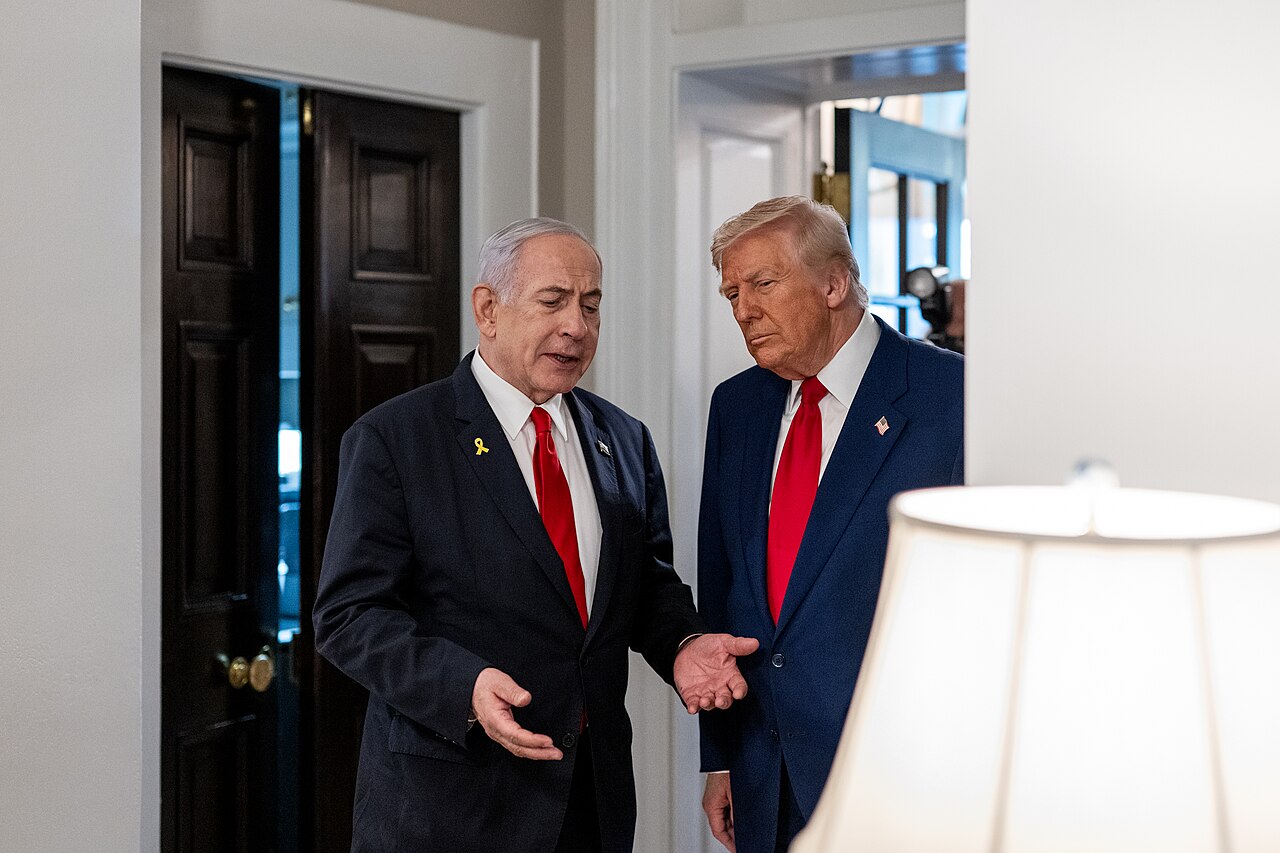
Although, realistically, a ceasefire was in the interests of the Israelis above all else, this fact was in obvious contradiction to the main strategic consideration of Netanyahu, which was to keep the USA directly involved in military hostilities with Iran.
This aim was in direct contradiction to the intentions of Donald J Trump, whose overriding consideration, having landed the USA in a very delicate position, was how to extricate it from the conflict, before it was dragged into an endless morass of war in the Middle East.
The solution for this dilemma was naturally child’s play for an experienced Machiavellian schemer like Benjamin Netanyahu. Israel had to accept the ceasefire… but immediately found an excuse for breaking it, pointing an accusing finger at Iran.
Job done! The Israelis lost no time in manufacturing an incident, accusing the Iranians of breaking the ceasefire by launching rockets against Israel, to which the Israelis – as always, the innocent victims of an unprovoked aggression – were compelled to respond with a barrage of their own.
This was a gamble. Netanyahu is a gambler, and is not afraid to take risks. And everything he knows from the past record convinced him that, if it was a choice between accepting the words of the hated regime of the bearded ayatollahs in Tehran and the honest, peace-loving, gentlemen in Jerusalem, the rest of the world – and especially the USA – would not hesitate to believe him.
Trump boils over
Trump reacted with fury to the news that Netanyahu had ordered airstrikes against Iran, alleging (almost certainly falsely) that Tehran had broken the ceasefire.
“All planes will turn around and head home, while doing a friendly ‘Plane Wave’ to Iran. Nobody will be hurt, the Ceasefire is in effect!” Trump said in a post on Truth Social.
Trump called Netanyahu to order him not to attack Iran. Netanyahu said the attack would not be cancelled, but only “scaled back”. That was not at all what the US president wanted to hear.
“Doesn’t seem that Israel was interested in that ceasefire,” he growled, followed by:
“When I say 12 hours, you don’t go out in the first hour and drop everything you have on them. I am not happy with Israel going out this morning because of one rocket that was shot perhaps by mistake. It didn’t land. I am not happy about that”
Followed by:
“ISRAEL. DO NOT DROP THOSE BOMBS. IF YOU DO IT IS A MAJOR VIOLATION. BRING YOUR PILOTS HOME, NOW! DONALD J. TRUMP, PRESIDENT OF THE UNITED STATES”
Followed by:
“Israel and Iran have been fighting for so long and so hard that they don’t know what the fuck they’re doing!”
Such colourful language is – shall we say – not quite normal in diplomatic circles. But it adequately conveys the extreme degree of anger and frustration felt by the man in the White House.
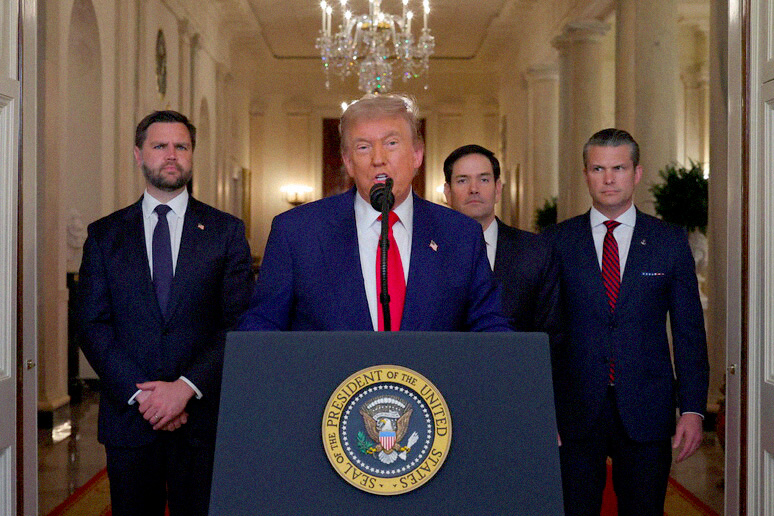
In a very heated telephone exchange, he seems to have vented his anger on Netanyahu, who will have been taken aback by the fury of the verbal assault, laced with the choicest expletives.
Israelis are not used to being talked to in this manner by American presidents. It will have served notice on them that the kind of endless impunity which they have hitherto enjoyed seems to be running out fast.
Sadly, there is no official record of the full conversation which the president had with the Israeli leader in a phone call made from Air Force One en route to the NATO summit meeting in Europe.
In all his life, Bibi Netanyahu had never heard such language from a man in the White House. He must have been quite shaken by it.
An announcement soon followed that Israel was not going to attack Iran, and that all planes would turn around and head home. A most humiliating climbdown. But what was Netanyahu trying to achieve when he decided to go against Trump’s direct instruction?
In order to answer this question, we have to look closer at America’s relationship with Israel, as it has developed over the space of decades.
Tail wags dog
One of the most remarkable aspects of the entire situation is the way in which Israel always succeeds in getting the USA to do its bidding.
This remarkable self-assurance is the product of many decades, in which Israel has been treated by the USA in the way a horrible spoilt brat is treated by a doting and rather stupid mother, in whose eyes the child can never do anything wrong, even if he poisons the cat and beats his little sister mercilessly on a daily basis.
Such spoilt brats invariably turn out to be the bullies whose main pleasure in life consists in tormenting other small children in the playground. Such behaviour is undoubtedly unpleasant to behold and subject to universal condemnation.
But Israel, which for decades has been playing the role of the school bully who torments, provokes and assaults neighbouring states in the whole of the Middle East, far from suffering any condemnation, or even the mildest criticism for committing the most appalling crimes, is held up as a paragon of virtue.
How does it come about that the tail wags the dog? How can one explain how the arrogant and self-important little tinpot leader of a tiny Middle Eastern state with a population of less than 10 million people can dictate to the most powerful nation on Earth?
The answer is very simple. In the United States, there is a very powerful and influential pro-Zionist lobby. It is not short of considerable material resources which it uses to bribe the services of influential US politicians, diplomats and journalists.
It has been built up over many decades and is deeply embedded in the institutions of power at every level. This formidable machinery can be brought into play at any moment to exert irresistible pressure on any US administration, compelling it to follow Israel through thick and thin.
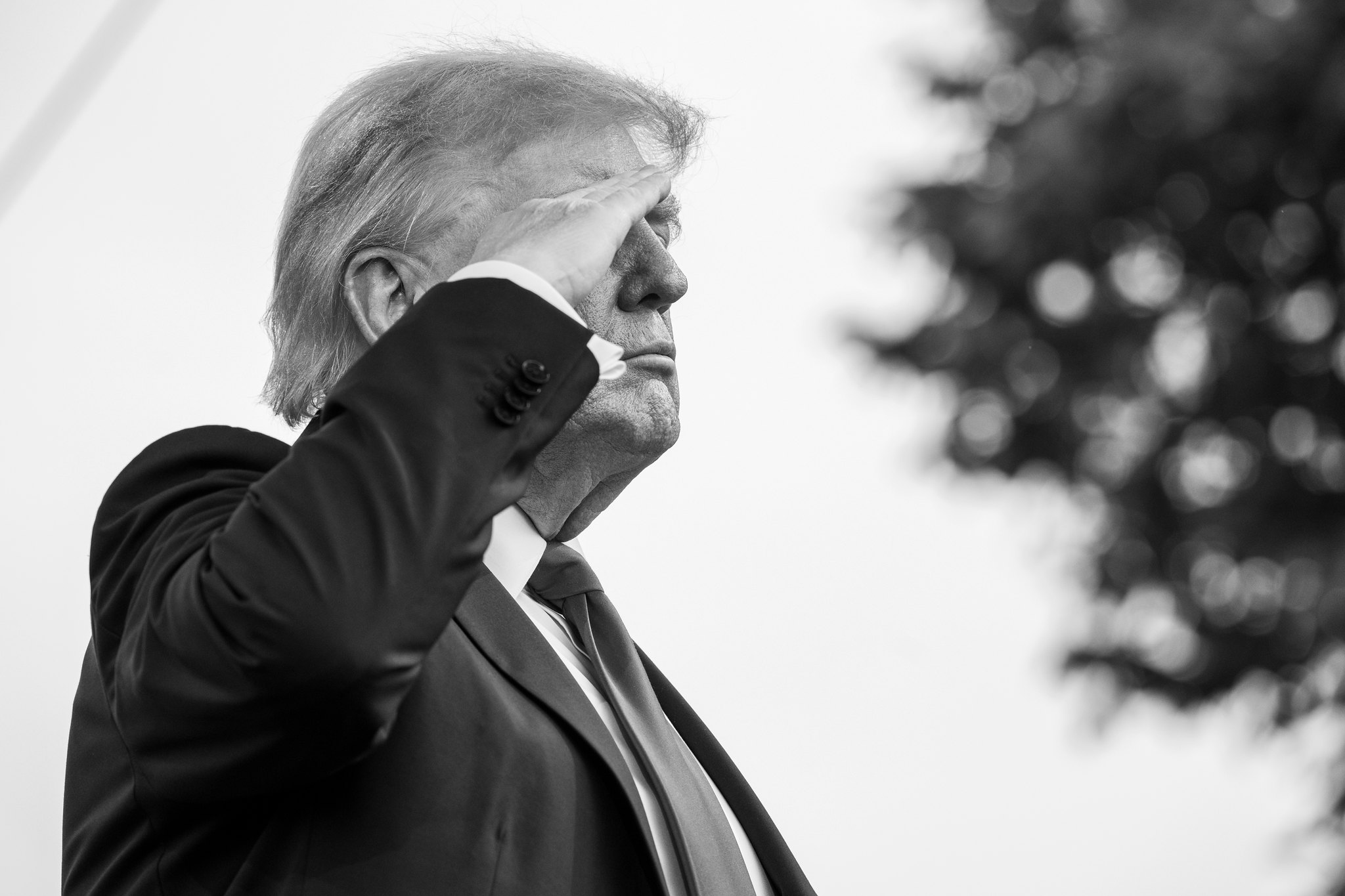
This fact enables the leaders of Israel to exert an influence on American foreign policy out of all proportion to the actual specific gravity of the state of Israel itself.
It also explains the extraordinary degree of self-assurance, bordering on arrogance, that frequently characterises the attitude of Israeli leaders towards the USA, which they expect to provide unlimited sums of money and quantities of arms, without contracting any particular obligations on the part of Israel. In short, it is a highly profitable business relationship!
And of all the Israeli leaders who have used and abused this remarkable relationship to their advantage, the man who has raised this extraordinary abuse of power to the level of an art form is none other than Bibi Netanyahu.
One can say that from the moment he became the leading man in Israel, he has shown something resembling contempt for the leaders of the USA, disregarding their advice and pressure, for example, to modify the extreme brutality shown to the people of Gaza, which is an embarrassment to the United States.
This absurdly one-sided relationship was clearly very much in evidence during the administration of the late unlamented Joseph Biden and his gang, who slavishly carried out everything that he demanded of them – and demand, not request, is the correct word.
But things became more complicated with the advent of Donald J Trump. Here is a man who, whatever else you can say of him, has his own ideas and can defend them with extreme stubbornness. To bend such a man to your will is not such an easy task.
Nonetheless, Netanyahu, basing himself on past experience, was prepared to see just how far he could go in defying the man in the White House. He has just learned a sobering lesson, namely that Donald J Trump is not a man to be trifled with.
The Israeli leader must have been profoundly shocked by the tone and content of his telephone conversation with Trump, who was not in the mood to argue. He therefore decided to beat a hasty retreat.
Does this mean an irrevocable rupture between Israel and the USA? Or even between Netanyahu and Trump? Such a conclusion would be premature. For, underlying all the other reasons why the USA always supports Israel, there are serious strategic considerations.
At this moment in time, Israel is the sole remaining reliable ally of US imperialism in the Middle East. It is therefore unthinkable that any US administration would go against Israel’s demands in the last analysis. This situation will continue for the foreseeable future.
Israel’s Achilles’ Heel
On the face of it, Netanyahu’s act of defiance seems to be completely irrational. It is a well-known fact that Israel is running low on defensive Arrow interceptors.
US officials were raising concerns about the country’s ability to counter long-range ballistic missiles from Iran if the conflict wasn’t resolved quickly. Israel would be unable to continue the war for more than about twelve days.
It was therefore in the interests of Israel to agree to a ceasefire as soon as possible.
The longer the war continued, the greater the advantage would tilt towards Iran, which, in contrast to Israel, possesses a huge stock of missiles, the effectiveness of which has now been tested and shown to be a formidable factor.
Netanyahu himself understands this perfectly well. So why did he attempt to sabotage the ceasefire? As we know, the Israeli leader is known to be a gambler, and gamblers take risks.
And what we must constantly bear in mind is the overriding factor in all his calculations: namely, that Israel cannot succeed in a war with Iran unless it manages to drag the USA into the conflict. In other words, his plan is to make the Americans fight his wars for him.
Netanyahu’s worst nightmare was that the USA would somehow manage to disentangle itself from the war with Iran. By sabotaging the ceasefire, Netanyahu hoped to prevent this – making dramatic appeals to the USA to come to his aid and to continue the war against Iran.
But he failed. Unfortunately for him, this plan is in direct contradiction to the interests of both the USA and, in particular, of Donald J Trump. And when it comes to a direct conflict of interest, those of the stronger party must prevail, and the weaker party must give way.
Russia’s response
There were, of course, other factors which made Donald Trump change his mind. Foremost in these was Trump’s relations with the Russians.
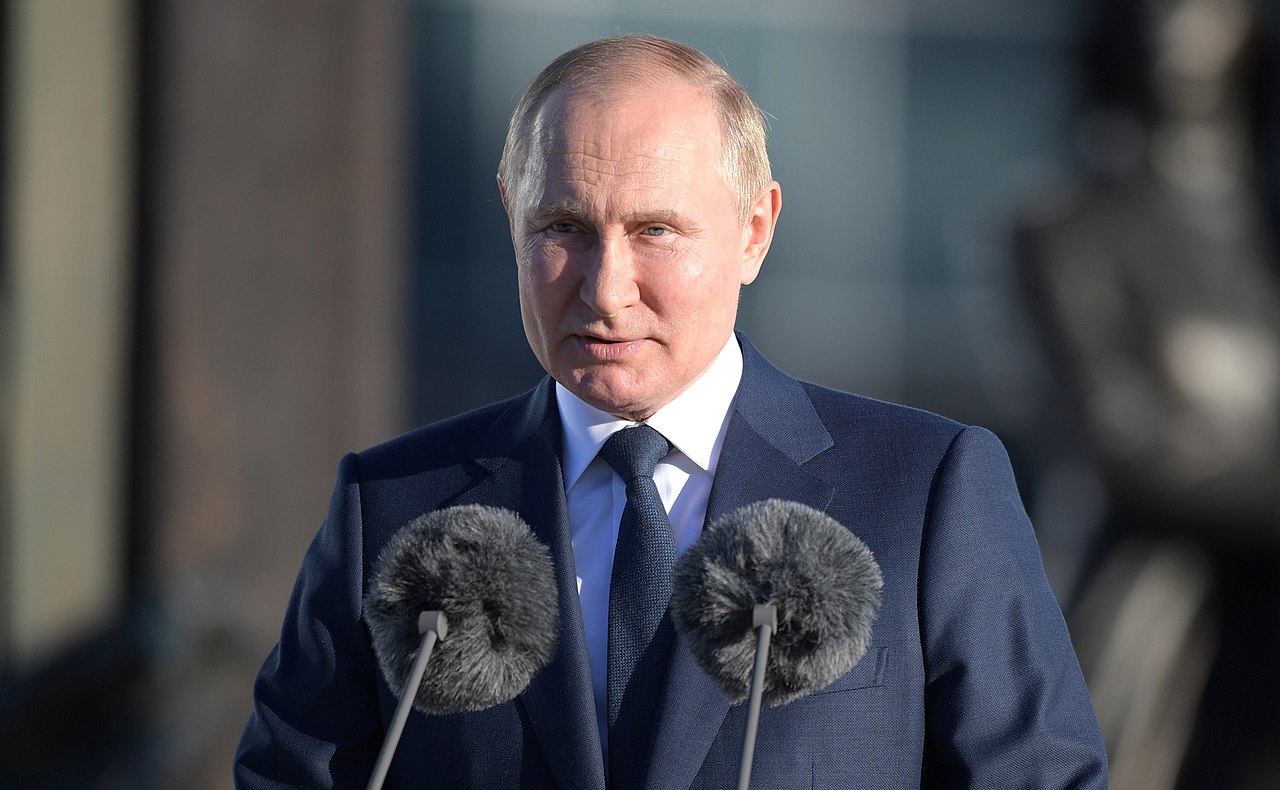
Shortly after Israel launched its attack on Iran, Putin rang Donald Trump. In that call, it seems likely that Trump warned Putin that he would not restrain the Israelis. Putin then warned Supreme Leader Ali Khamenei of the danger his regime was facing and advised him to move quickly toward negotiations. Additionally, Putin ordered the evacuation of Russian embassy personnel from Tehran.
It is reported that Putin reached a deal with Israel not to target Russian nuclear engineers working in some Iranian installations.
Putin strongly rejected allegations that Moscow has failed to back its ally, Tehran, saying the Kremlin has maintained good ties with both Iran and Israel. He noted that Israel is home to nearly 2 million people from Russia and other former Soviet nations, “a factor that we always have taken into account.”
The measured tone of these comments may have somewhat calmed fears in Washington that Russia was about to send arms and equipment to assist Iran, particularly in the field of air defence, in which it has shown itself to be woefully inadequate.
Nevertheless, Trump and his team will be well aware that Iran is a key ally of Russia, and that, if the conflict is protracted, such material aid will necessarily be made available, not just from Russia, but from China also, which has important interests in the region and very close relations with Iran.
Although Putin does not wish to be drawn into a direct conflict with the USA and has carefully maintained cordial relations with Donald Trump, he is a man with a cold, calculating brain, and he is well able at any moment to remove the velvet glove and reveal the iron fist that lies concealed within it.
Already, it is evident that a sharp debate has been taking place within the ruling circles in Moscow as to what line to take in relation to Iran. The hardliners favour immediate action to send military aid to Tehran.
And one of their most prominent spokesmen has made his views abundantly clear. The former president of the Russian Federation, Dmitry Medvedev, recently made the following biting assessment of the position:
“1. Critical infrastructure of the nuclear fuel cycle appears to have been unaffected or sustained only minor damage.
2. The enrichment of nuclear material – and, now we can say it outright, the future production of nuclear weapons – will continue.
3. A number of countries are ready to directly supply Iran with their own nuclear warheads.
4. Israel is under attack, explosions are rocking the country, and people are panicking.
5. The US is now entangled in a new conflict, with prospects of a ground operation looming on the horizon.
6. Iran’s political regime has survived – and in all likelihood, has come out even stronger.
7. The people are rallying around the country’s spiritual leadership, including those who were previously indifferent or opposed to it.
8. Donald Trump, once hailed as ‘president of peace,’ has now pushed the US into another war.
9. The vast majority of countries around the world oppose the actions of Israel and the United States.
10. At this rate, Trump can forget about the Nobel Peace Prize – not even with how rigged it has become.
What a way to kick things off, Mr. President. Congratulations!”
The sarcastic tone of these words cannot conceal the inner significance of the message, which is far from tranquillising from the standpoint of Washington.
And despite the moderate tone of Putin’s remarks to the Iranians, Trump will have noted with some concern that Putin has called the US strikes on Iran an “unprovoked aggression” and that Russia was “making efforts to provide assistance to the Iranian people.”
To negotiate or not to negotiate?
Now, the man in the White House is insisting that the time is ripe for Iran to “do a deal” with the United States. Negotiation is the way, he says, not war. But the man who broke off negotiations in order to launch bombs against those who he describes as “the enemy” is not the ayatollah, but the president of the United States.
The leaders of the western world have obediently joined in the chorus, shouting loudly that Iran must “return to the negotiating table.”
This smug phrase is empty of all content, for the simple reason – as the Iranians never tired of pointing out – that they have never left the negotiating table. It was the Americans that walked away from it, not they. And that is perfectly true.
Why should they now start negotiating with the very same people that sabotaged the negotiations before, cynically using them as a cover to prepare for naked aggression?
Moreover, what will they negotiate about? The Americans are demanding that Iran gives up not just nuclear-weapons, but the use of nuclear energy for peaceful purposes also. This insolent demand is such a flagrant violation of Iran’s national sovereignty that no Iranian administration is likely to accept it.
Even if they were to do so, it would immediately be followed by new demands: give up your long-range ballistic missiles! And if they agreed to that, they would doubtless be asked to disband the army, leaving Iran completely defenceless in the face of Israeli aggression.
Therefore, the Iranians have been left with no incentive to negotiate, and certainly no trust in the willingness of the other side to negotiate with them in good faith.
In a word, they have been driven into a corner and given no other alternative except to prepare for the next war, which they see – probably correctly – as an inevitability.
What now?
It is just as well that the present occupier of the White House is in direct contact with the Almighty. That way, at least you know that somebody knows what is planned next.
For the rest of us ordinary mortals, it must largely be a question of speculation – a guessing game, if you like. But at least, as Marxists, our guesses are solidly grounded in scientific analysis of the facts.
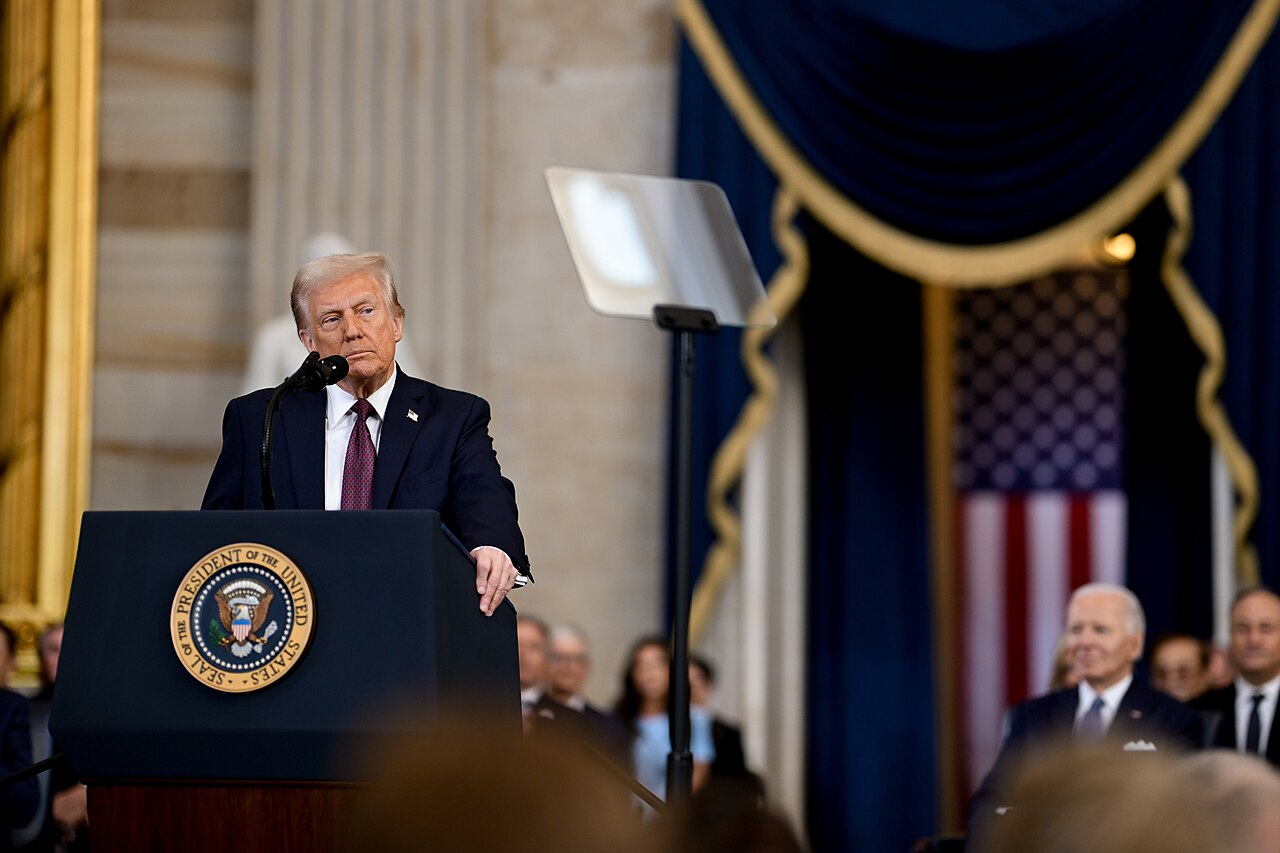
The first question must be: will the ceasefire last? To this question, only a very qualified answer can be given. In the first place, every ceasefire, in its early stages, tends to be a somewhat disorganised, ragged and desultory affair.
Random shots can still be fired long after the agreed period, and this will normally be discounted in the calculations of both contending parties.
Only the most serious breaches of the ceasefire can lead to a general resumption of hostilities. But given the fact that Israel is known to be running very short of air defence launchers and missiles, the Israelis will not be in any hurry to renew hostilities – unless, of course, the Americans decide to intervene on their side. That, at least at the present time, does not seem likely.
Therefore, unless the Iranians make some bad miscalculation, the Americans will have no reason to resume hostilities.
As we have stated in our previous article, Trump has no wish to see the USA dragged into the dangerous morass of what he calls a “forever war” in the Middle East, which he needs like a hole in the head.
There is therefore no reason to suppose that his efforts to disengage following the bombing raid were insincere. Rather, they were dictated by the real interests of US imperialism – and those of Donald J Trump.
At this point, the contradiction between the war aims of Netanyahu and the interests of Donald Trump becomes glaringly obvious. Netanyahu’s overriding objective is to draw America into direct participation in the conflict with Iran – as we have explained, he wants America to fight his wars for him.
That does not suit America or Donald Trump. Quite the contrary, in fact.
Does that mean to say that war is ruled out in the Middle East? Does it mean that the region can finally enjoy the period of peace and stability that it desperately needs? Unfortunately, we have to answer this question in the negative.
The Palestine question
The Palestinian question remains unresolved, and acts as a constant provocation to the people of the Middle East.
The pampered darling of American imperialism is permitted to conduct the most blatant acts of aggression against other people and is excused on the spurious grounds of the ‘right to self-defence’.
But when the Palestinians, suffering the most brutal and inhuman oppression, dare to stand up to their oppressors, they have no such right. Just as Iran – which has not invaded any other state – is not entitled to defend itself against an act of blatant and unprovoked aggression at the hands of Israel.
In such cases, there is always a hue and cry raised by the so-called western democracies that Iran must ‘show restraint’ – whereas no such demands are ever made of Israel. Even when some kind of mild criticism is made, they are never followed up by any concrete measures to halt the Israeli aggression.
Just imagine the scene: a man who was being attacked and robbed in the street with a knife held at his throat. The neighbours gather round and advise the victim to please stop shouting, as it disturbs the sleep of innocent citizens, and will only serve to annoy the aggressor still further.
You will say that such a thing is unimaginable – utterly impossible. Yet this is precisely what is occurring on a regular basis under what our peaceful democratic leaders like to describe as the ‘international rule-based order’.
Despite the ceasefire, none of the fundamental problems have been resolved. To look no further, the slaughter in Gaza continues unabated, with daily stories of the murder of innocent men and women, whose only crime is to wait in an endless queue for a small bag of provisions to feed their starving families.
And what of Iran?
As for the Iranians, they have suffered considerable damage, but have emerged from the war with their industries and their war machine virtually intact. And it will not be long before they conclude that the only guarantee for their future security is precisely to obtain nuclear weapons at the earliest possible moment.
The fact that their stocks of enriched uranium were removed from the affected areas and spirited away to locations that are unknown to the Americans, Israelis or anybody else, means that this objective is probably far nearer to achievement than anyone imagines.
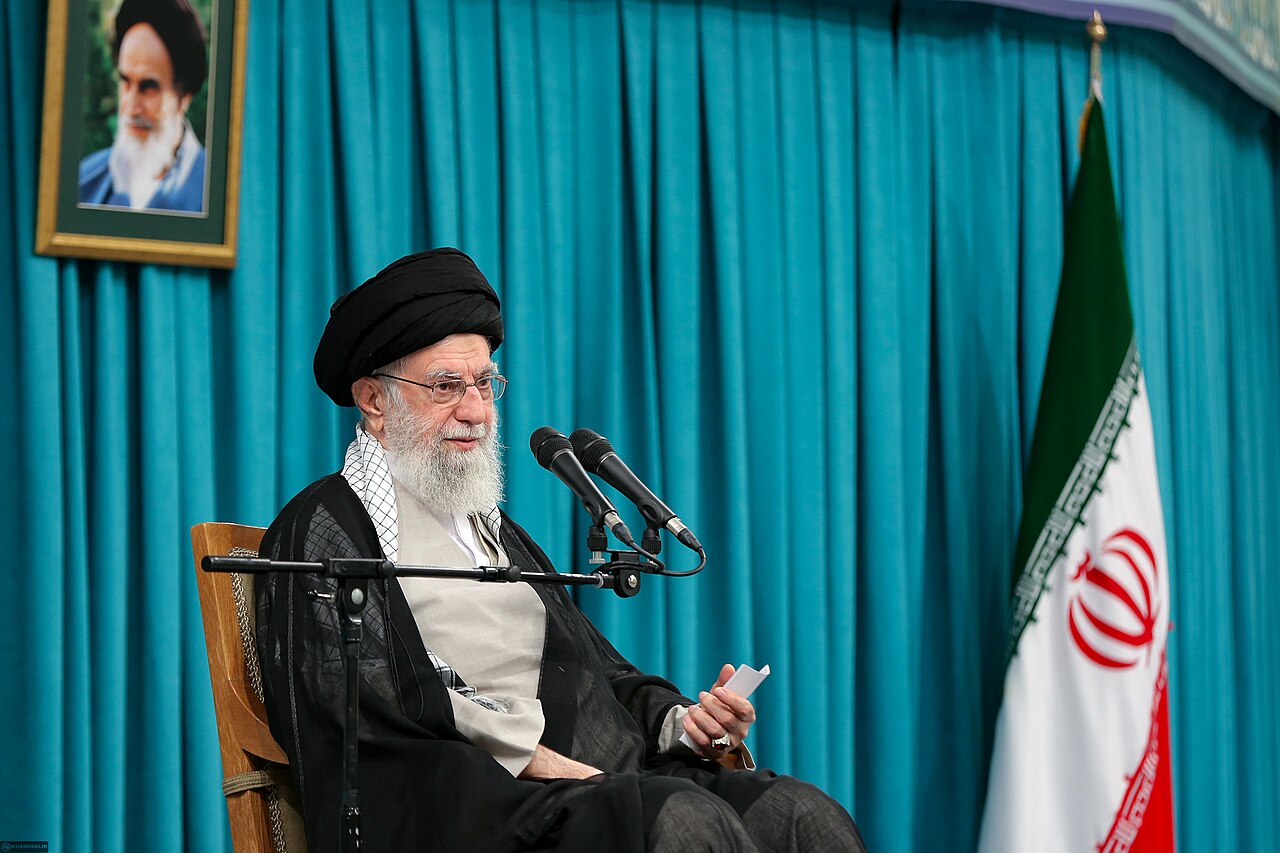
The first point that must be made is that the crisis has not been resolved. Israel has not achieved regime change in Iran. It does not have the safeguards against attack that it wanted. And the question of Iran’s nuclear enrichment programme and its ultimate stated purpose remains very much in doubt – in fact, even more than before.
There is always the possibility that this confrontation could restart at any time. And the widespread opinion of people in both Israel and Iran is that the present fragile ceasefire is merely a pause in the conflict, not the end of the crisis.
These fears are obviously shared by the ruling circles in Iran. The Supreme Leader, Ayatollah Khamenei, recently delivered a defiant speech on television, congratulating the Iranian people on what he called the victory over Israel and the United States.
However, the exact whereabouts of the supreme leader remain a closely guarded secret, since both the Israelis and the American President have spoken openly about plans to assassinate him.
In fact, it is not at all impossible that either the United States, or particularly the Israelis, could take advantage of the ceasefire to launch a surprise attack to assassinate Khamenei and other Iranian leaders. So the Iranians are obviously taking precautions.
Undoubtedly, they will be taking other, far more substantial precautions. Although the details will not be public for obvious reasons, it is quite clear that the Chinese and the Russians will be providing Iran with the necessary means of defending itself.
The recent conflict exposed serious weaknesses in Iran’s defensive system. The most serious weakness was the total security failure, which allowed the Israelis – who have a very efficient intelligence service – to infiltrate Iran and install a network of secret agents with many contacts with Iranian dissidents.
This was a key factor in the early days of the war, when Israel was able to utilise drones that had, amazingly, been manufactured within Iran itself, without the knowledge of the Iranian intelligence services.
However, by utilising those agents, Israel has exposed them to identification and arrest. The regime has been made aware of the existence of the Israeli spy network, and is taking energetic measures to destroy it. The Russians will be providing them with invaluable assistance in tightening up security at all levels.
The Times recently reported a wave of arrests taking place across Iran as the Iranian security forces now use the information they have obtained about the cells to arrest a large number of people, both Israeli ‘sleeper’ agents and dissidents.
For all these reasons, future attacks against Iran will be far more difficult than what we have seen so far.
As time passes, the fear will grow in both Jerusalem and Washington that Tehran is actively pursuing the goal of a nuclear weapon. The absence of reliable information that was previously provided by the International Atomic Energy Agency (IAEA) will only heighten those fears.
Here we must say a few words about the role of the IAEA.
Its Director General, Rafael Mariano Grossi, is strongly suspected of having collaborated with the intelligence services in the USA. The Iranians claim – doubtlessly correctly – that he provided the Americans with important classified information concerning Iranian nuclear facilities, which facilitated the US bombing raid.
The pro-American stance of the IAEA is an open secret. The Russians have repeatedly denounced the Ukrainians for attacking the nuclear plant in Zaporizhzhia, which constitutes a war crime and is contrary to international law.
But despite repeated requests from the Russians, the IAEA has consistently refused to blame the Ukrainians.
More recently, Iran’s nuclear chief Mohammad Eslam wrote to the IAEA, saying Tehran wants an investigation into the US strikes and is urging the watchdog to condemn the US action. However, typically, no such response was forthcoming.
As a result, Iranian lawmakers voted to suspend its collaboration with the International Atomic Energy Agency because the UN nuclear watchdog refused to condemn Sunday’s US strikes on Iran’s nuclear facilities, alleging falsely that Tehran had “failed to comply with its nuclear obligations”.
Unless the Iranians agree to collaborate with the IAEA – something which does not seem to be a remote possibility at the present time – at a certain point, pressure will again build up for another attack on Iran. A new outbreak of hostilities is not just a possibility, but a probability before the end of the year.
Once again, this would probably be brought about by the Israelis, who would immediately call upon the USA to back them. And it is very likely that they will do so.
But this time, the stakes will be far higher than before. The declared intention will no longer be to destroy or damage Iran’s nuclear uranium enrichment facilities. It will be to carry out the complete decapitation of Iran’s leadership and to achieve regime change in Tehran.
But this will take place under conditions that are far more difficult and dangerous than last time. America would enter into a slippery downward slope, leading to yet another ‘forever war’ in the Middle East.
The Americans now find themselves in dangerous and completely uncharted waters. By their reckless actions, they have entered into a downward spiral, and nobody can say where that spiral will end.






